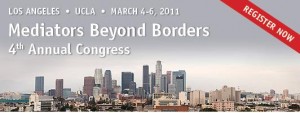 I continue with my reflections on the 4th Annual Mediators Beyond Borders Congress and offer a few more take-aways from one of the workshops I attended, entitled “Essentials in Relating Across Cultures” by Ed Ladon and Alan Gross.
I continue with my reflections on the 4th Annual Mediators Beyond Borders Congress and offer a few more take-aways from one of the workshops I attended, entitled “Essentials in Relating Across Cultures” by Ed Ladon and Alan Gross.
We began with the discussion of culture as an iceberg metaphor. Only about one-eighth of an iceberg is visible above the water. A larger section of an iceberg is concealed below the water. Similarly, we can observe some aspects of culture, but a big part of it remains almost imperceptible. It can only be suspected, guessed, or developed as understanding of the culture grows.
We shared examples of how cultures differ in their perceptions of time, intrinsic human nature, social relations, attitudes towards Nature, among other things.
My take-away is to approach cross-cultural work with an open mind as a learning experience. You need to do your reading and get a network of local informants who can help you navigate the more subtle aspects of the culture. Even still, you are likely to make mistakes and embarrass yourself occasionally. What helps here is a sense of humor and humility, and open communication. Setting expectations from the start that miscommunication may happen, things may get tough, and people may get angry, but it is all manageable if there is mutual respect and the desire to work together. As Ed Ladon put it, “Anything worth doing is worth doing poorly, at least, at the beginning stages, i.e. to learn.”
When you are in the host country, it pays to observe, ask a lot of questions, and listen. Become a people-watcher. Flexible approaches help when you work on a cross-cultural project while assumptions hurt.
On a side note, I can’t help but think about the influence of cross-cultural experiences on the brain. Research shows that culture shapes the brain:
East Asians tend to process information in a global manner whereas Westerners tend to focus on individual objects. There are differences between East Asians and Westerners with respect to attention, categorization, and reasoning. For example, in one study, after viewing pictures of fish swimming, Japanese volunteers were more likely to remember contextual details of the image than were American volunteers. Experiments tracking participants’ eye movements revealed that Westerners spend more time looking at focal objects while Chinese volunteers look more at the background. In addition, our culture may play a role in the way we process facial information. Research has indicated that when viewing faces, East Asians focus on the central region of faces while Westerners look more broadly, focusing on both the eyes and mouth.
Here are some additional resources on culture and the brain:
“Cultural Neuroscience – Culture and the Brain” by Daniel Lende provides a good summary of the current research.
“Culture and the Brain” by Nalini Ambady and Jamshed Bharucha is the research review paper [PDF].
“Culture and Systems of Thought: Holistic Versus Analytic Cognition” by Richard E. Nisbett, et al is another paper on the topic, including cultural, historic, and business perspectives [PDF].
“Cultural Borders and Mental Barriers: The Relationship Between Living Abroad and Creativity” by William W. Maddux and Adam D. Galinsky is a paper on how living overseas boosts creative thinking [PDF].
“Culture and Attention: Comparing the Context Sensitivity between East Asians and Westerners” by Takahiko Masuda is a slideshow presentation with the summary of the current research.
Related posts:
Reflections on the 4th Annual Mediators Beyond Borders Congress, Part 3: Compassionate Listening

Leave A Comment
You must be logged in to post a comment.